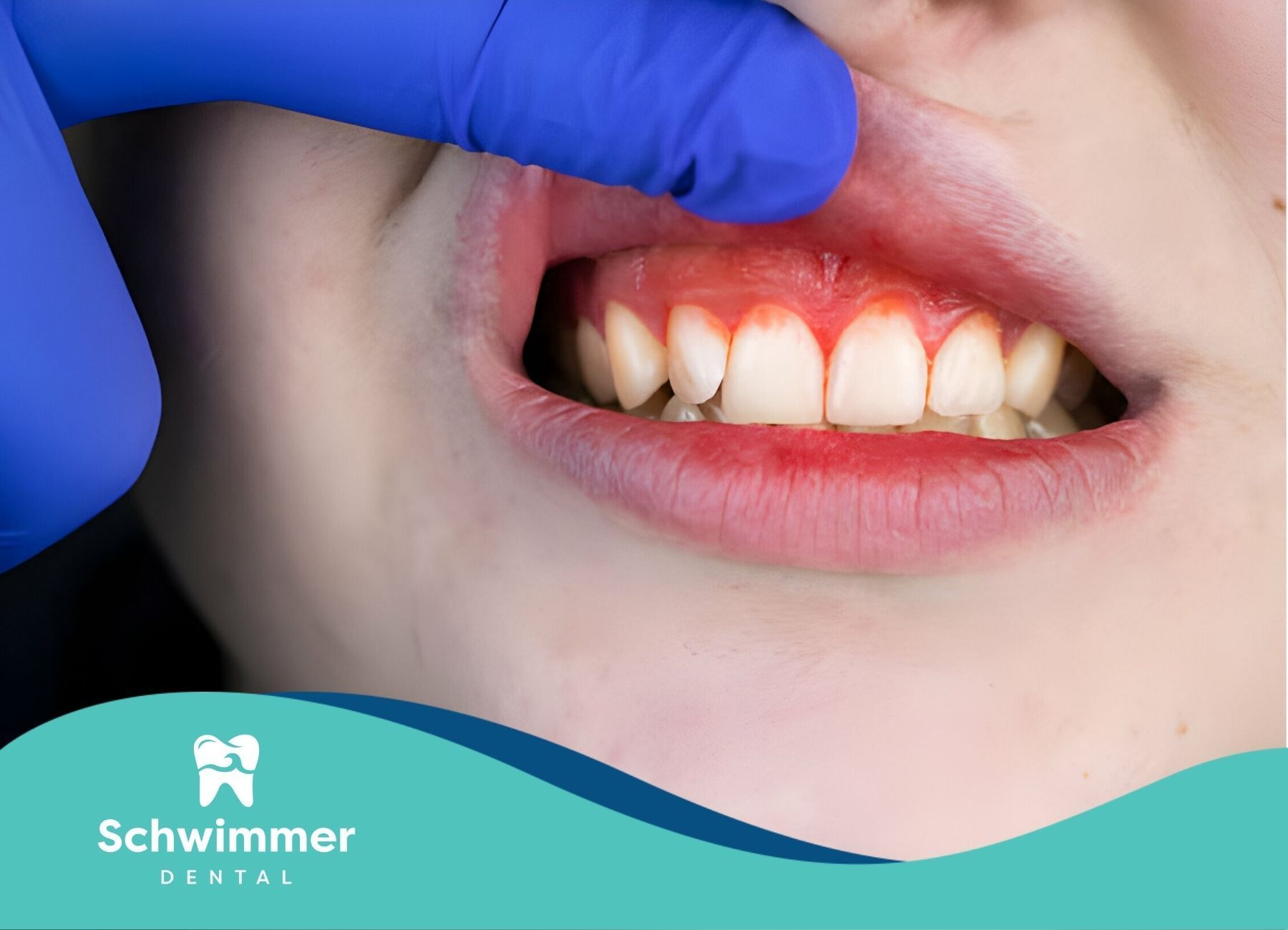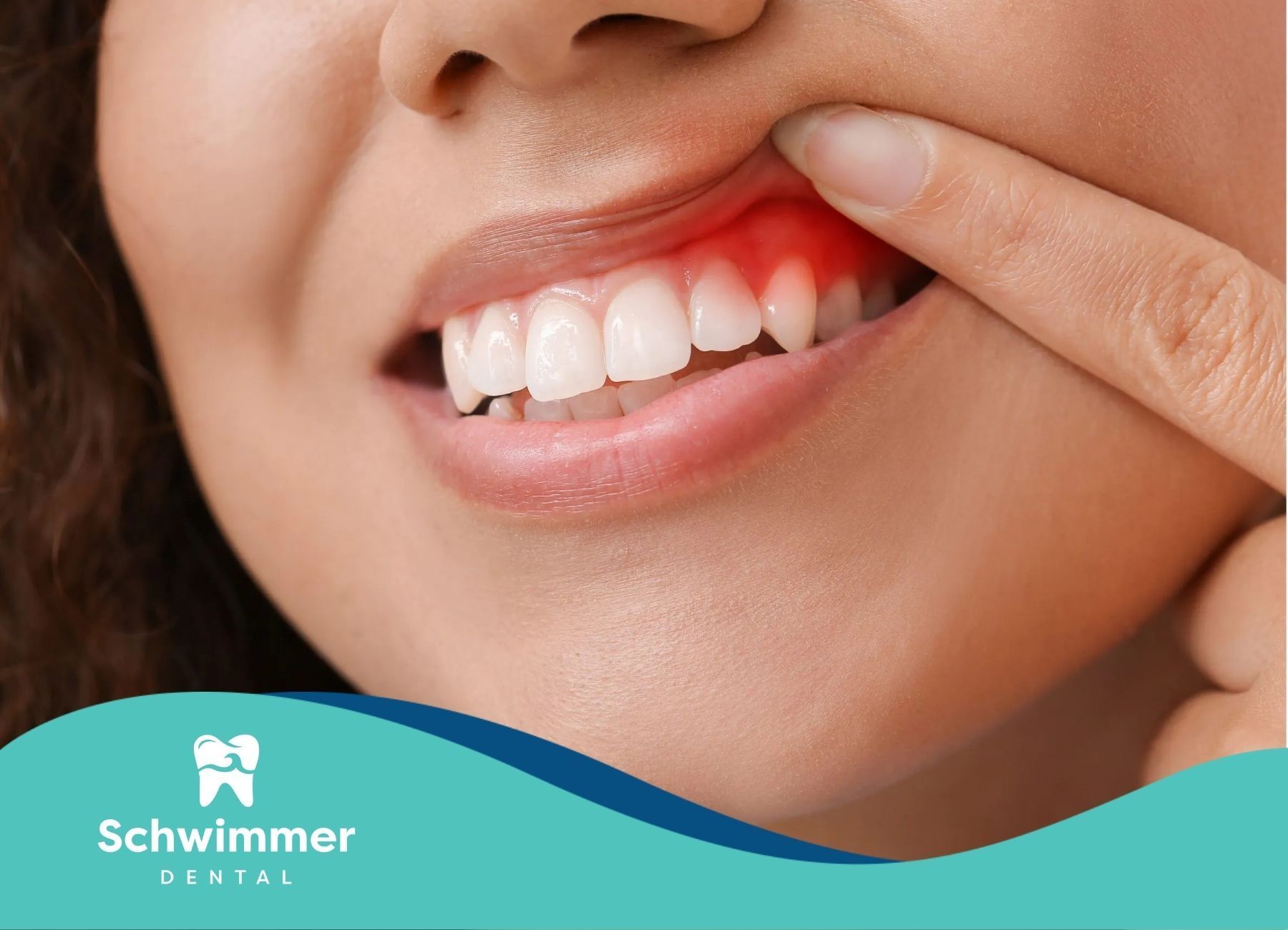The Effects of Tongue Piercing Rings on Your Oral Health
Tongue piercings have long been associated with individuality, rebellion, and self-expression. For many, they are a fashion statement or a symbol of personal identity. However, while the aesthetic appeal of tongue rings is undeniable, few people stop to consider the dental health risks that come with them.
Unlike ear piercings, tongue piercings pose unique challenges because they are constantly in motion, making contact with teeth, gums, and soft tissues inside the mouth. Over time, this can lead to tooth fractures, gum recession, infections, and long-term oral health complications.
We had a patient who came in complaining of tooth sensitivity and gum irritation. He had recently gotten a tongue piercing, and while he loved how it looked, he noticed that his teeth felt rougher and his gums were inflamed.
After an exam, it became clear that his piercing had led to enamel erosion and early-stage gum recession. He was shocked to learn that something as simple as a piercing could have such serious effects on his oral health.
Many people don’t realize that oral piercings require special care to prevent damage. Let’s take a deep dive into how tongue piercings affect dental health and what can be done to minimize the risks.
How Tongue Piercing Rings Affect Your Dental Health
Chipped and Cracked Teeth
One of the most immediate and common dental issues related to tongue piercings is tooth fractures. A metal barbell or ring in the mouth can accidentally hit the teeth while eating, speaking, or even sleeping.
Even if it doesn’t seem harmful at first, repeated impact can cause small cracks in the enamel. These cracks may start off as minor surface imperfections but can deepen over time, leading to tooth sensitivity, pain, and an increased risk of cavities.
If the cracks become severe, the tooth may need a filling, dental crown, or even a root canal to prevent further damage. Some cases have even resulted in broken teeth that required extraction.
Gum Recession and Soft Tissue Damage
Constant friction from a tongue ring can also cause gum tissue to recede, exposing the roots of the teeth. The gums act as a protective barrier for the underlying bone structure, so when they start to wear away, several issues can arise.
One of the first noticeable symptoms of gum recession is tooth sensitivity, especially when consuming hot or cold foods. As the recession progresses, it becomes easier for bacteria to settle along the gumline, increasing the risk of gum disease and infections.
A more serious concern is that gum tissue does not regenerate on its own. Once it’s gone, the only solution is gum grafting surgery, which involves taking tissue from another part of the mouth to cover the exposed areas. For those who love their tongue piercings, this is an important consideration before deciding to keep them long-term.
Increased Risk of Oral Infections
The human mouth is home to millions of bacteria, and a fresh tongue piercing creates an open wound that provides easy access for those bacteria to enter the bloodstream. While minor swelling and discomfort are normal after a piercing, signs of infection should never be ignored.
Common symptoms of an infected tongue piercing include redness, swelling, persistent pain, and the presence of pus around the jewelry. Some individuals may also experience fever, an unpleasant taste in the mouth, or difficulty swallowing.
If left untreated, infections can spread beyond the mouth, leading to serious complications such as an abscess or even sepsis. Professional cleaning and antibiotic treatment may be necessary to prevent further health risks.
Speech and Eating Difficulties
A tongue piercing can interfere with normal tongue function, affecting both speech and eating. The tongue plays a crucial role in forming sounds, so any obstruction—especially a metal barbell—can lead to difficulty pronouncing certain words. Some people develop a slight lisp, while others notice that their speech becomes slurred.
Eating can also be affected, as the presence of jewelry makes it more difficult to chew food properly. Some individuals accidentally bite down on the jewelry, causing pain and, in some cases, tooth damage. In addition, the increased salivation that often accompanies new tongue piercings can make swallowing more challenging.
These issues are particularly noticeable in the first few weeks after getting pierced. However, even those who have had their piercings for a long time may still experience occasional difficulties.
Excessive Saliva Production and Bad Breath
Having a foreign object in the mouth can stimulate the salivary glands, leading to excessive saliva production. While saliva is essential for maintaining oral health, an overproduction can cause drooling and discomfort, especially during the adjustment period after getting a piercing.
Another common concern is bad breath (halitosis). Bacteria and food particles can easily become trapped around the piercing site, leading to unpleasant odors. If the jewelry is not cleaned regularly, it can contribute to plaque buildup, making the problem even worse.
Brushing, flossing, and using an antibacterial mouthwash can help control bad breath, but those with tongue piercings must be extra diligent about their oral hygiene to prevent odor-causing bacteria from accumulating.
Risk of Nerve Damage
One of the lesser-known but serious risks associated with tongue piercings is nerve damage. If the piercing needle hits a nerve during the procedure, it can lead to temporary or permanent numbness in the tongue. Some people also report a loss of taste or altered sensation, making certain foods and drinks less enjoyable.
In some cases, the nerve damage is temporary, resolving within a few weeks or months. However, there are instances where the loss of sensation is permanent, affecting both speech and eating habits in the long run.
Long-Term Dental Risks of Tongue Piercings
Permanent Enamel Erosion
Once enamel is damaged, it cannot regenerate. Individuals with tongue piercings often experience progressive wear and thinning of their enamel, making their teeth more vulnerable to decay and staining.
The constant rubbing of metal jewelry against the teeth accelerates this process, leading to rough surfaces that attract plaque and bacteria.
Higher Risk of Dental Restorations
Many people with tongue piercings eventually require dental restorations due to accumulated damage. These may include fillings, crowns, veneers, or even dental implants in severe cases. While dental treatments can repair damage, they can be costly and time-consuming.
Risk of Jewelry Inhalation or Swallowing
There have been cases where individuals accidentally swallow their tongue jewelry if it becomes loose. This can lead to digestive issues or airway obstruction, requiring emergency medical attention.
Conclusion: Is a Tongue Piercing Worth the Risk?
While tongue piercings may be a trendy form of self-expression, they come with significant dental health risks. From chipped teeth and gum recession to infections and nerve damage, the consequences can be long-lasting. Those considering an oral piercing should carefully weigh the aesthetic benefits against the potential harm to their teeth and gums.
If you already have tongue piercings, regular dental check-ups and good oral hygiene are essential to minimize complications. If any issues arise, a professional dentist can help assess the damage and provide solutions to protect long-term oral health.
For expert dental care, Schwimmer Dental offers comprehensive exams and personalized guidance to help patients maintain their healthiest smiles. If you have concerns about the effects of your tongue piercing, schedule an appointment with Schwimmer Dental today and let us help you keep your teeth strong and healthy!
FAQs
Can a tongue piercing cause permanent damage to my teeth?
Yes, tongue piercings can lead to permanent damage if the jewelry repeatedly comes into contact with teeth. Over time, this can result in chipped or cracked enamel, gum recession, and even tooth loss. In some cases, minor damage can be repaired with bonding or crowns, but severe cases may require extractions or gum graft surgery.
How can I reduce the risks of dental problems with a tongue piercing?
Minimizing risks requires careful choices and good oral hygiene. Opting for a flexible, biocompatible tongue ring instead of metal can reduce the impact on teeth and gums.
It’s also essential to avoid habits like clicking or playing with the jewelry, as this can accelerate damage. Keeping up with daily brushing, flossing, and using an antibacterial mouthwash can help prevent infections. Regular dental checkups are also important, as they allow a dentist to monitor for early signs of complications and address them before they become severe.
What are the signs that my tongue piercing is causing an infection?
A piercing infection can present with persistent swelling, redness, and pain that lasts beyond the expected healing period. Some people may notice discharge, pus, or a foul odor coming from the piercing site.
In more serious cases, infections can cause fever, difficulty swallowing, or swelling that spreads to other areas of the mouth. If any of these symptoms appear, it’s crucial to seek immediate dental or medical attention to prevent further complications.
Sources:
- https://www.ada.org/resources/ada-library/oral-health-topics/oral-piercing-jewelry
- https://pmc.ncbi.nlm.nih.gov/articles/PMC3259306/
- https://pmc.ncbi.nlm.nih.gov/articles/PMC3926233/
- https://www.dentalhealth.org/safe-smiles-oral-piercings
- https://www.colgate.com/en-us/oral-health/threats-to-dental-health/tongue-piercing-rings-dental-health



